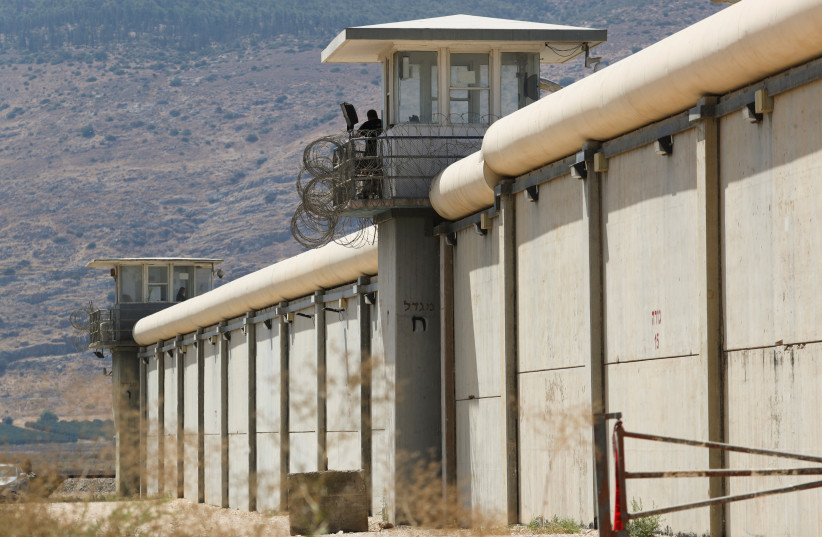Israel's prisons are in a state of crisis, and overcrowding is creating degrading conditions for prisoners, Public Defender Anat Meyassed-Cnaan said Wednesday in a letter to National Security Minister Itamar Ben-Gvir (Otzma Yehudit). Furthermore, detainees are being kept at ill-equipped police stations, she wrote.
Some 16,000 inmates are in Prisons Service facilities, about 1,500 more than the maximum occupancy capacity standard of 14,500 inmates.
In February, due to overcrowding, 54% of inmates had basic conditions of 4.5 square meters per person, including a toilet and shower. Even with additional accommodations that were built in recent years, 56.5% of all prisoners had sufficient space.
Israeli prisons break the law and send prisoners to police holding
During a July 25 visit by the Public Defender’s Office to the Nitzan Prison and Detention Center, it was discovered that overcrowding had led to administrative detainees and convicted prisoners being housed together in the same wings, which is against the law. Some of the detainees had to sleep on mattresses on the floor, and there was a shortage of medical equipment, the Public Defender’s Office reported.
To avoid overcrowding at Prisons Service facilities, detainees were being kept at police stations, which lacked the necessary resources to house them for long periods, the report said. The cells at police stations are designed for short detentions, and they often lack beds, mattresses, toilets, and showers. The police are ill-suited to provide basic services such as food, water, toiletries, and clothing. Access to the open air and medical treatment is also unavailable.

The phenomenon emerged in 2022, with a surprise visit by Public Defender’s Office representatives to 19 police stations. Many detainees were forced to sleep on the bare floor and suffered from poor hygienic conditions and prolonged thirst. One man was kept at a station for five days and only provided with a mattress on the last night. Another man was kept in an eight-sq.m. holding cell with three other people, and they had two mattresses and no toilet.
A surprise visit last Wednesday revealed that the cells were dirty and without ventilation. One drug addict was detained for 10 days without any medical treatment, the report said.
Last August, the Association for Civil Rights in Israel petitioned the High Court of Justice to end the overcrowding. The petition was canceled when the Prisons Service said the practice had ended in December. Reports of congestion have reemerged in recent months.
"The current crisis, which is getting worse every day, requires immediate intervention to bring an end to the mistreatment of detainees in police stations,"
Anat Meyassed-Cnaan
“The current crisis, which is getting worse every day, requires immediate intervention to bring an end to the mistreatment of detainees in police stations,” Meyassed-Cnaan wrote. “We would like to include the Public Defender’s Office in professional discussions on the matter.”
